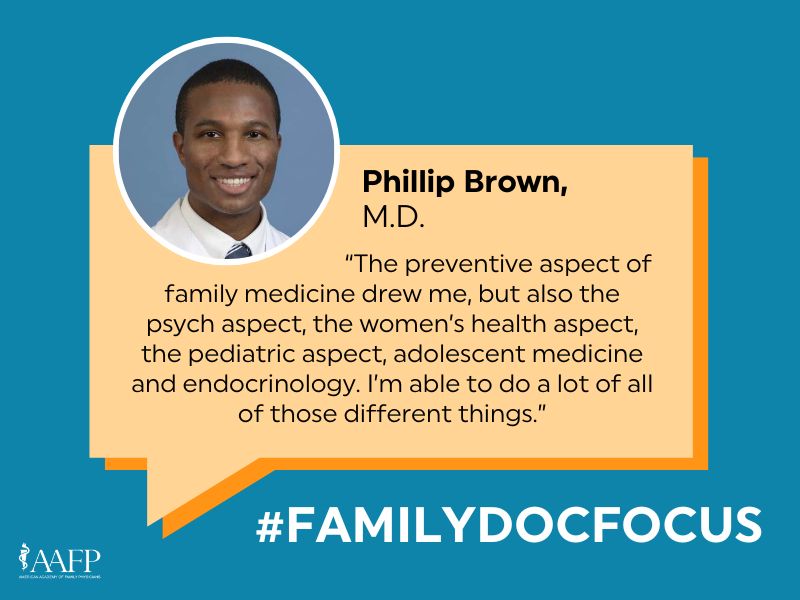Academy Recognizes Efforts of UCLA Mentor
Dec. 19, 2024, David Mitchell — Phillip Brown, M.D., knew early on that he wanted to be a doctor. As the son of a Cleveland Clinic medical-surgical nurse, he had access to shadowing and research opportunities.

The question was, what kind of doctor would he be?
“George Clooney was killing it on ER,” said Brown, who was in grade school when the long running medical drama debuted and a senior in college when it ended. “For the longest time, I always thought I’d do ER, probably because of the show. But when I actually was in the ER, I was like, ‘Oh, I don’t think this is quite it. I respect this field, but I don’t think that it’s for me.’ I needed to find that broader scope, which I really liked.”
Brown said he enjoyed pediatrics and psychiatry, but he didn’t want to be limited to either field. His light-bulb moment came in a conversation with a surgical resident during medical school.
“I remember asking, ‘Why do we have so many amputees in our clinics and in the hospital?’” Brown said. “The senior resident lifted a patient onto a gurney and just matter-of-factly said, ‘Diabetes, dude.’ And he kept walking. I thought, ‘That’s crazy. It can’t be like this.’ The preventive aspect of family medicine drew me, but also the psych aspect, the women’s health aspect, the pediatric aspect, adolescent medicine and endocrinology. I’m able to do a lot of all of those different things.”
Brown also knew that as a Black male physician he could play an important role for some patients.
“African American patients, who might not trust or listen to other physicians, will listen to me,” he said, “so I’m able to prevent a lot of those conditions.”
After graduating from historically Black Howard University College of Medicine, Brown trained at the Family Medicine Residency at the University of California, Los Angeles. The difference was striking.
“We all look for someone who represents us,” said Brown, who served as chief resident at UCLA before joining the faculty in 2019. “Sometimes the lack thereof is motivating. For me, there was nobody else who looked like me. There were no Black attendings at UCLA in our core faculty for family medicine. Being able to fill that role and bring that consistent presence is pretty incredible.”
Brown, who was honored by the AAFP with an Exemplary Teaching Award this fall, became director of UCLA’s Community Medicine Fellowship Program earlier this year. He also works with medical students and nurse practitioner students.
Nearly a decade has passed since his first year at UCLA, but Brown said his early struggles in Los Angeles make him a better teacher today.
“We’re always looking for excellent residents,” said Brown, who is an application reviewer for UCLA’s Family Medicine Residency, which has a focus on the development of leaders in medicine who will be able to address policy, care and research in health care for underserved communities. “It’s easy to get frustrated with people when they’re struggling. But as someone who initially struggled during my intern year, I come with a sense of compassion and understanding because I know how hard it can be to find your footing in medicine.”
When Brown was accepted to medical school, his Cleveland Clinic mentor gave him a talk. He was expecting a “Disney Channel inspirational speech.” What he got instead was a reality check.
“He said that medicine is a long and lonely road,” Brown said. “It was the speech that I needed to hear, which was that this is not going to get easier. This is going to be isolating at times and other people aren’t always going to know what you’re going through. I don’t know that I fully appreciated it then, but I always heard those words echoed when I was studying, when I was working hard in the hospital or in the cadaver labs. It gave me confidence.”
Brown hopes he can provide the same kind of insights for the students, residents and fellows at UCLA.
“It’s exciting because I have all this knowledge now, so my mentees don’t have to make the missteps or have the uncertainty that I did,” he said. “If you can make the experience less isolating for other people, that’s so important. It goes back to why I wanted to be a faculty and go into academics.”